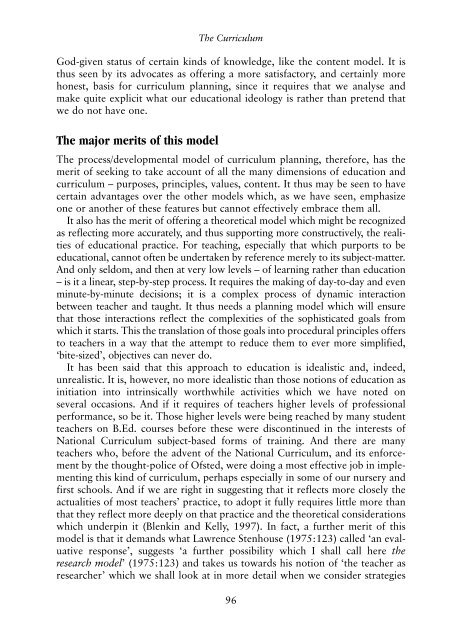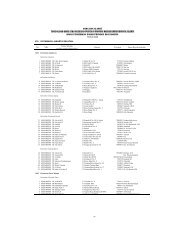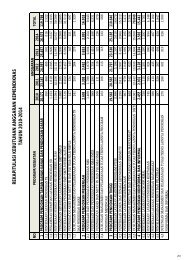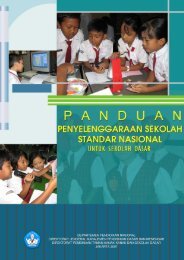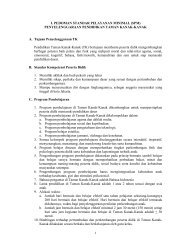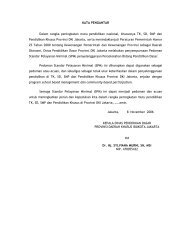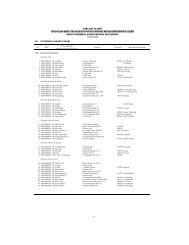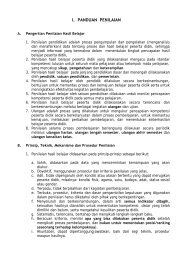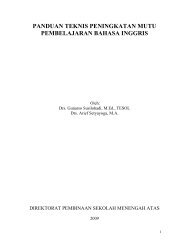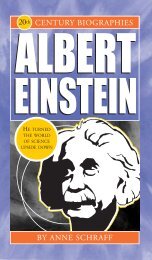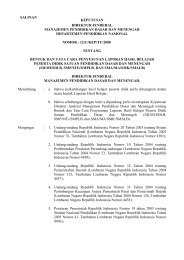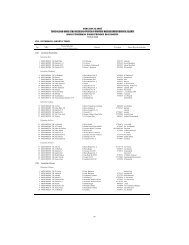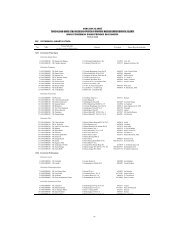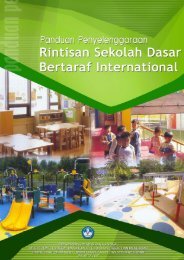The Curriculum - WordPress.com
The Curriculum - WordPress.com
The Curriculum - WordPress.com
Create successful ePaper yourself
Turn your PDF publications into a flip-book with our unique Google optimized e-Paper software.
God-given status of certain kinds of knowledge, like the content model. It isthus seen by its advocates as offering a more satisfactory, and certainly morehonest, basis for curriculum planning, since it requires that we analyse andmake quite explicit what our educational ideology is rather than pretend thatwe do not have one.<strong>The</strong> major merits of this model<strong>The</strong> <strong>Curriculum</strong><strong>The</strong> process/developmental model of curriculum planning, therefore, has themerit of seeking to take account of all the many dimensions of education andcurriculum – purposes, principles, values, content. It thus may be seen to havecertain advantages over the other models which, as we have seen, emphasizeone or another of these features but cannot effectively embrace them all.It also has the merit of offering a theoretical model which might be recognizedas reflecting more accurately, and thus supporting more constructively, the realitiesof educational practice. For teaching, especially that which purports to beeducational, cannot often be undertaken by reference merely to its subject-matter.And only seldom, and then at very low levels – of learning rather than education– is it a linear, step-by-step process. It requires the making of day-to-day and evenminute-by-minute decisions; it is a <strong>com</strong>plex process of dynamic interactionbetween teacher and taught. It thus needs a planning model which will ensurethat those interactions reflect the <strong>com</strong>plexities of the sophisticated goals fromwhich it starts. This the translation of those goals into procedural principles offersto teachers in a way that the attempt to reduce them to ever more simplified,‘bite-sized’, objectives can never do.It has been said that this approach to education is idealistic and, indeed,unrealistic. It is, however, no more idealistic than those notions of education asinitiation into intrinsically worthwhile activities which we have noted onseveral occasions. And if it requires of teachers higher levels of professionalperformance, so be it. Those higher levels were being reached by many studentteachers on B.Ed. courses before these were discontinued in the interests ofNational <strong>Curriculum</strong> subject-based forms of training. And there are manyteachers who, before the advent of the National <strong>Curriculum</strong>, and its enforcementby the thought-police of Ofsted, were doing a most effective job in implementingthis kind of curriculum, perhaps especially in some of our nursery andfirst schools. And if we are right in suggesting that it reflects more closely theactualities of most teachers’ practice, to adopt it fully requires little more thanthat they reflect more deeply on that practice and the theoretical considerationswhich underpin it (Blenkin and Kelly, 1997). In fact, a further merit of thismodel is that it demands what Lawrence Stenhouse (1975:123) called ‘an evaluativeresponse’, suggests ‘a further possibility which I shall call here theresearch model’ (1975:123) and takes us towards his notion of ‘the teacher asresearcher’ which we shall look at in more detail when we consider strategies96


